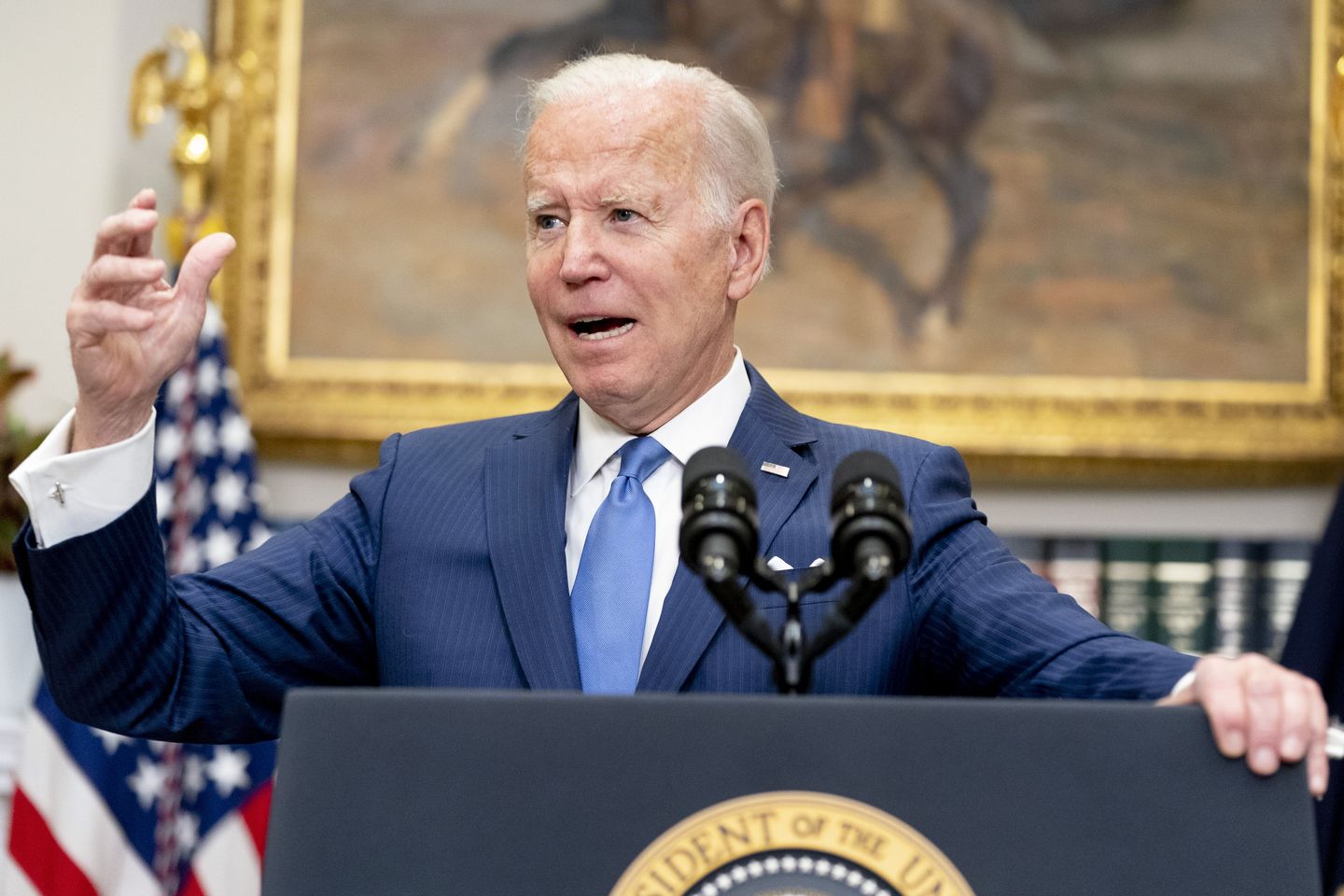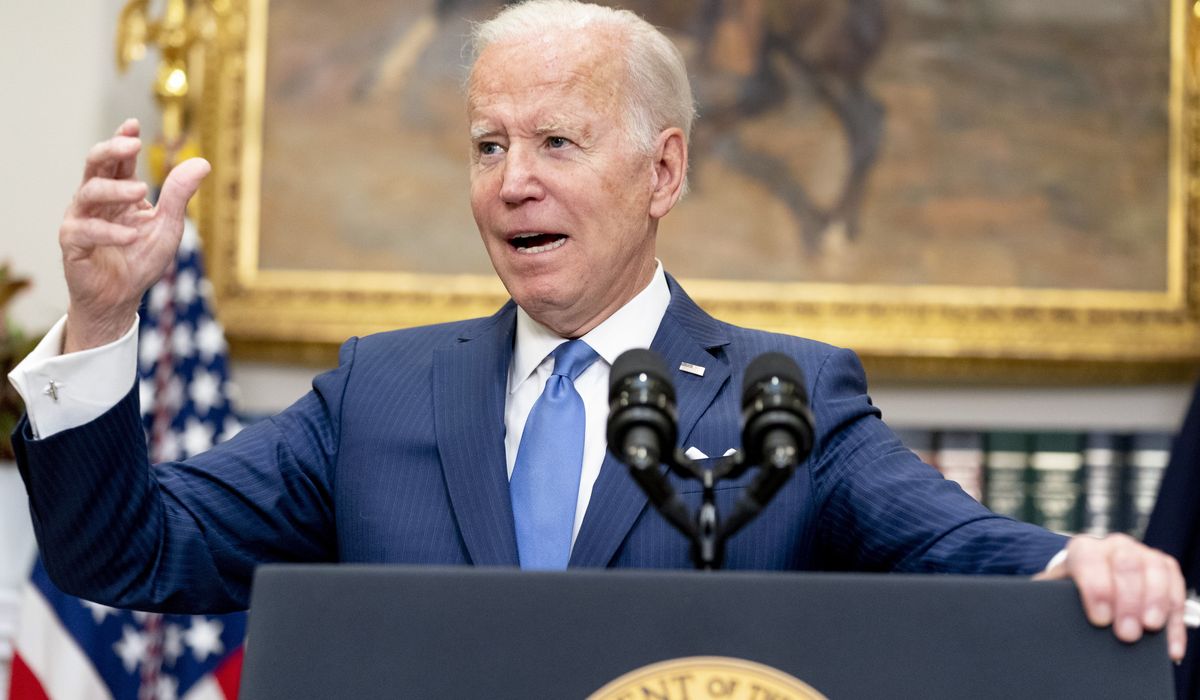

President Biden on Thursday prodded Congress to fork over another $33 billion to support Ukraine in its fight against a renewed Russian assault.
“The cost of this fight is not cheap but caving to aggression is going to be more costly if we allow it to happen,” Mr. Biden said in remarks from the White House. “We either back the Ukraine people as they defend their country or we stand by as the Russians continue their atrocities and aggressions in Ukraine.”
Mr. Biden also wants to make it easier to seize and sell the assets of Russian oligarchs, and then send the proceeds to Ukraine.
The new aid package will ensure Ukraine has the weapons it needs to fight its Russian attackers as well as replenish the U.S.’s stockpile of weapons that have been rushed to Kyiv, senior administration officials said when briefing reporters about the plan.
The $33 billion in aid, which is a combination of military, economic and humanitarian assistance to Ukraine, is expected to last through September, which is the end of the government’s fiscal year.
Mr. Biden wants $20.4 billion in additional security and military assistance for Ukraine, including additional artillery, armored vehicles, anti-armor and anti-air capabilities. The funds will also cover the costs of advanced air defense systems, boost Ukraine’s cyber capabilities, clear landmines and other explosive devices, and address biological, radiological and nuclear material hazards.
“This so-called supplemental funding addresses the needs of the Ukrainian military during the critical weeks and months ahead,” Mr. Biden said. “And it begins the transition to longer-term security systems that are going to help Ukraine, in turn, defend against Russian aggression.”
Another $8.5 billion in economic aid will go directly to the government of Ukraine to provide basic services, including health care and infrastructure projects, as well as to counter Russian disinformation.
Roughly $3 billion in humanitarian assistance would target food security by addressing wheat, flour and other shortages. It will also provide Ukraine with blankets, emergency medical supplies, job training, and mental health services.
An additional $500 million in food production aid will also be used to support the production of food crops in the U.S. that are in short supply because of the war in Ukraine.
The president will also seek a small amount of funding under the Defense Production Act to produce materials that are in short supply domestically. Those items range from Javelin anti-tank missiles to automobiles.
It is estimated that the U.S.’s Javelin missile supply has dropped 33% since the Ukraine invasion.
Mr. Biden urged Congress to expedite his request, which is expected to garner widespread bipartisan support.
The U.S. has provided a total of $3.2 billion to Ukraine since the beginning of Mr. Biden’s presidency. Much of that came after Moscow invaded Ukraine on Feb. 24.
In March, Congress passed legislation approving $13.6 billion for Ukrainian assistance, including $3.5 billion in military equipment. Mr. Biden said that aid has been exhausted as the Russian attack on Ukraine enters its third month.
Last week, Mr. Biden announced $800 million in military assistance for Ukraine, which included heavy artillery, dozens of howitzers and 144,000 rounds of ammunition.
The president has ruled out sending U.S. troops to fight Russian forces directly in Ukraine. Instead, he has sought to assist Ukraine through a series of humanitarian and military aid packages.
Mr. Biden also pushed for a package of legislative proposals that would streamline the process of seizing property from Russian oligarchs. The proposals would also make it a crime for a person to “knowingly or intentionally possess proceeds directly obtained from corrupt dealings with the Russian government.”
The president is seeking to double the statute of limitations for foreign money laundering offenses to 10 years and expand the definition of “racketeering” under U.S. law to include efforts to evade sanctions.
Mr. Biden will also ask Congress to allow the federal government to use the proceeds from selling the seized assets from Russian oligarchs to help Ukraine. Lawmakers from both parties and Attorney General Merrick Garland have all endorsed the measure.
So far, the U.S. and European Union has frozen over $30 billion in assets, including nearly $7 billion in boats, helicopters, real estate and artwork, according to a White House fact sheet.
